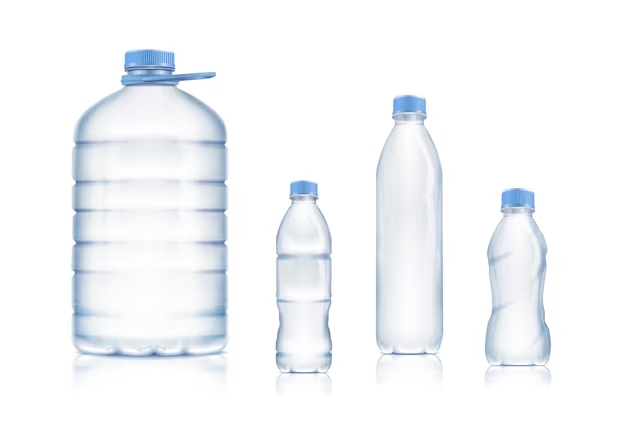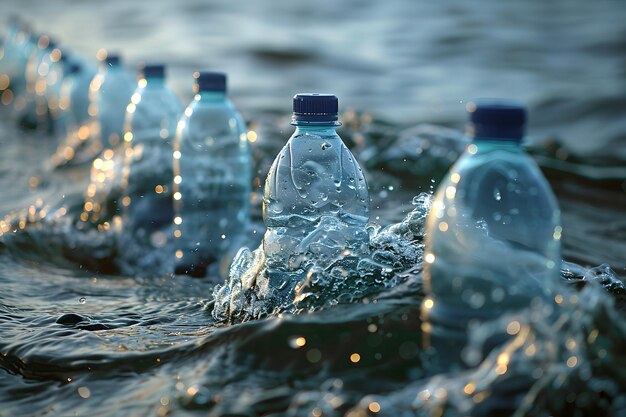Introduction
In an era where access to safe drinking water is crucial,
bottled water has become a popular choice for many, especially in regions with
limited clean water sources. While convenient, the environmental repercussions
of plastic water bottles demand our attention. This article delves into the
impact of plastic water bottles, the role of responsible consumption, and
initiatives like Bisleri’s Bottles for Change program, emphasizing the urgent
need for sustainable practices.
The Environmental Consequences of Plastic Bottles
Plastic water bottles, whether small or large, contribute
significantly to environmental challenges:
- Production
Footprint: The production of PET (Polyethylene Terephthalate) bottles
involves extracting fossil fuels like natural gas and crude oil. A report
from ChemAnalyst indicated that India’s PET bottle market reached 1,285
thousand tonnes in FY2023, with significant growth projected. The process
to create these bottles is energy-intensive, contributing to carbon
emissions.
- Waste
Management: Most plastic bottles are designed for single use. After
consumption, they are often discarded, leading to poor waste management. A 2019 study highlighted that incinerating
plastic can release harmful greenhouse gases, further exacerbating climate
change.
- Decomposition
Rates: Research shows that PET bottles can take up to 500 years to
degrade, leading to plastic pollution in landfills and waterways. The
environmental impact is severe, with plastics contaminating ecosystems and
harming wildlife.
- Water
Pollution: Discarded plastic bottles can end up in rivers and oceans,
contributing to pollution and posing a threat to aquatic life. Efforts to
curb this issue must include responsible disposal practices.
The Role of Responsible Consumption
While plastic bottles present environmental challenges,
individuals can take steps to mitigate their impact. One solution is to recycle
responsibly. Choosing brands like Bisleri, which uses 100% recyclable PET
bottles, can help promote more sustainable consumption. Bisleri’s commitment to
minimizing single-use plastics is crucial in addressing these environmental
concerns.
Bisleri’s Bottles for Change Initiative
Bisleri has launched the Bottles for Change program, a
pioneering initiative aimed at recycling plastic and promoting responsible
consumption. This program emphasizes the importance of recycling in India,
where approximately 60% of plastic is recycled, but a significant portion still
ends up in landfills.
- Community
Engagement: The Bottles for Change program collaborates with municipal
corporations, housing societies, schools, and hotels to facilitate the
collection and recycling of used plastics. By working with local
communities, Bisleri fosters awareness and promotes proper disposal
practices.
- Recycling
Process: Recycled plastics can be transformed into new products,
including clothing and furniture. The process involves cleaning, cutting,
and melting plastic, demonstrating how responsible recycling can
contribute to a circular economy.
- Impact
Metrics: Since its inception, the Bottles for Change initiative has
collected over 10,329 metric tonnes of used plastics, engaging more than
10.3 lakh citizens across India. The program’s reach includes 20 cities
and multiple educational institutions, promoting environmental awareness.
Conclusion: A Collective Responsibility
The impact of plastic water bottles is significant, but they
are not insurmountable. By participating in initiatives like Bisleri’s Bottles
for Change, individuals can contribute to reducing plastic pollution. It is
crucial to advocate for proper segregation, disposal, and recycling practices
in our communities.
As consumers, we hold the power to influence change. By
choosing eco-friendly brands and participating in recycling initiatives, we can
work towards a healthier planet. Raising awareness about the environmental
impact of plastic bottles and promoting sustainable practices is essential for
creating a more responsible and environmentally conscious society.











